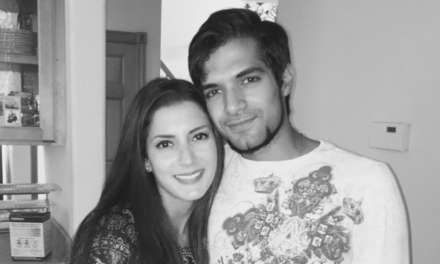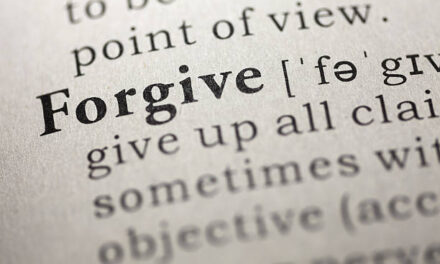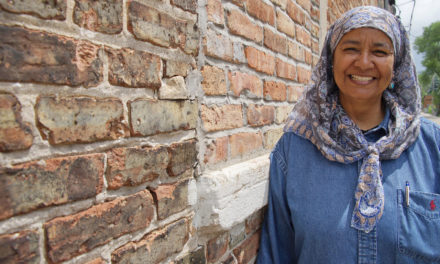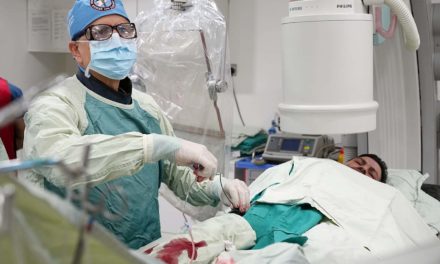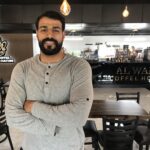From left to right: Dania Shoukfeh, Kelly Saran and Maryam Ahmed won one of three grants from the Madison Public Library’s 2022 Library Takeover Initiative. The grant is being used to host an event on Muslim mental health at the library.
“Mental health is part of Islam,” said Dania Shoukfeh, one of three women whose proposal for a program on Muslim mental health won support from the Madison Public Library. “The Prophet (pbuh) made sure his companions felt loved, even through the roughest times. He made them feel important, secure and confident.”
Yet Muslims in the United States today are two times more likely to attempt suicide compared to other religious groups, according to a recent study published in JAMA Psychiatry, a peer-reviewed journal of the American Medical Association. The study also found Muslims may access mental health services less frequently than other religious groups.
Shoukfeh, a special education teacher; Maryam Ahmed, University of Houston master’s student in clinical mental health counseling; and Kelly Saran, a producer at PBS Wisconsin decided to do something about it. They drafted a proposal for a two-day program on Muslim mental health and submitted it to the Madison Public Library’s Library Takeover Initiative, a grant-funded opportunity for community members to create an event at the library.
They won! Their proposal for the two-day program Muslim Mental Health Matters was one of three selected to be hosted at the library in 2022.
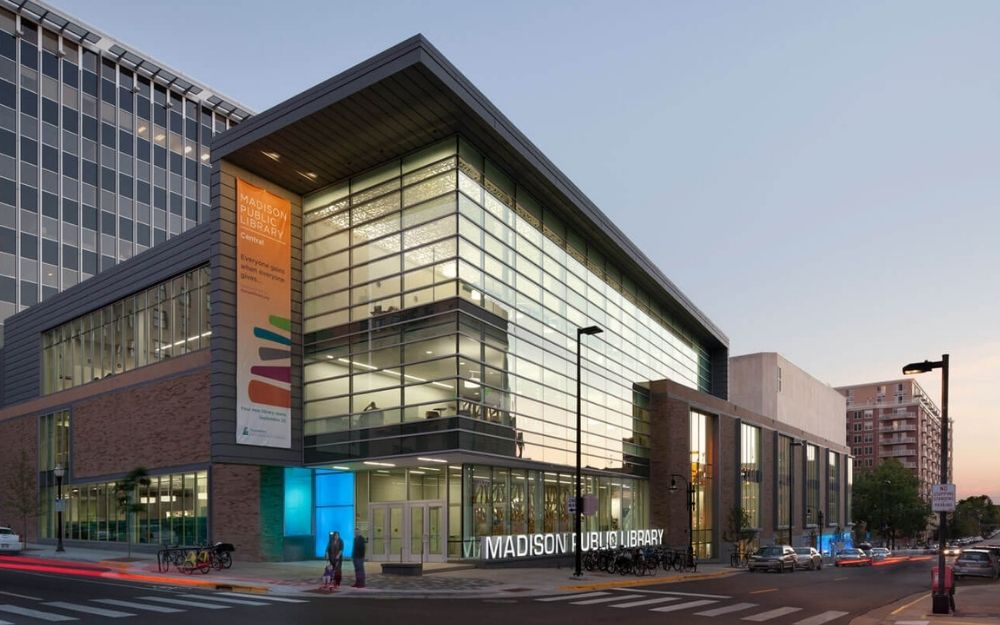
Muslim Mental Health Matters, an event for Madison’s Muslim community, with discussion and activities led by a mental health professional, will be held Sunday, March 6, at the Madison Public Library, 201 W. Mifflin St., Madison.
It offers a “Muslim Wellness Day” for Muslim adults and families, featuring a presentation and discussion led by AbdulAziz Syed, a licensed clinical social worker and therapist from the Khalil Center, a psychological and spiritual community wellness center in Chicago dedicated to advancing the professional practice of psychology rooted in Islamic principles. It also includes activities for men, women and youth.
Interested community members are welcomed to come to the Madison Public Library to attend.
Day Two offers the Muslim Mental Health Symposium for therapists, counselors and other professionals (Muslim and non-Muslim) who want to learn how to better serve Muslim clients. It is offered virtually from 10:30 a.m. to 1 p.m., Monday, March 7. Register here.
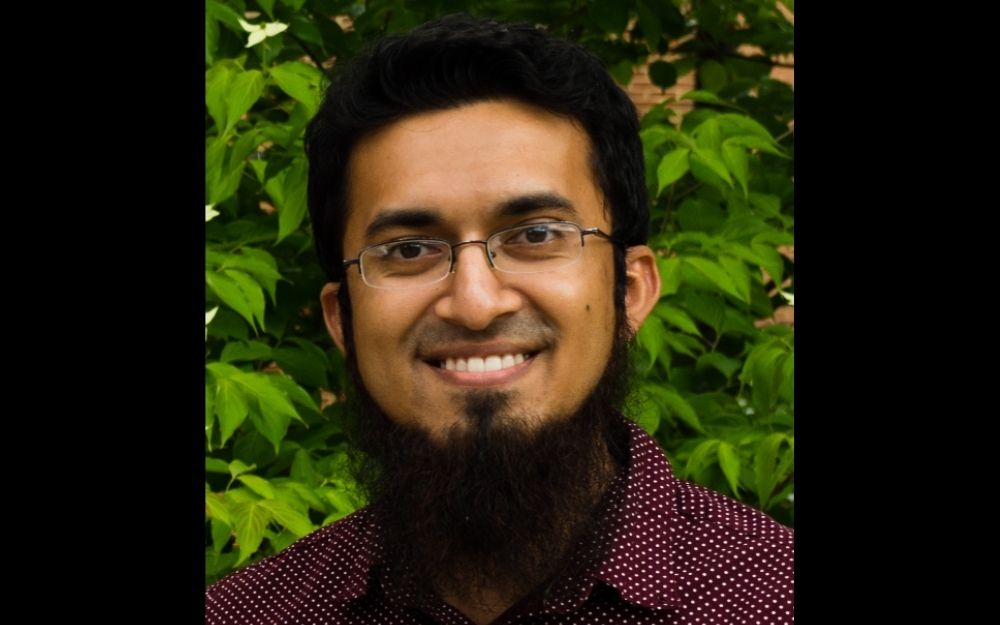
Rafee Al-Mansur, a therapist and community educator with The Family & Youth Institute, will lead virtual workshops March 7 for professionals wanting to learn how to take better care of Muslim clients.
It will be led by Rafee Al-Mansur, a community educator with The Family & Youth Institute, in Detroit, Michigan, a national research and educational institute that focuses on Muslim mental health and family wellness. Al-Mansur has a master’s degree from the University of Maryland in couple and family therapy. He has been providing therapy to individuals, couples and families since 2015. Al-Mansur is also the current chair of the Couple and Intimate Relationships Network of the American Association for Marriage and Family Therapy.
Both programs are free of charge to participants.
Madison’s Muslim community is encouraged to attend
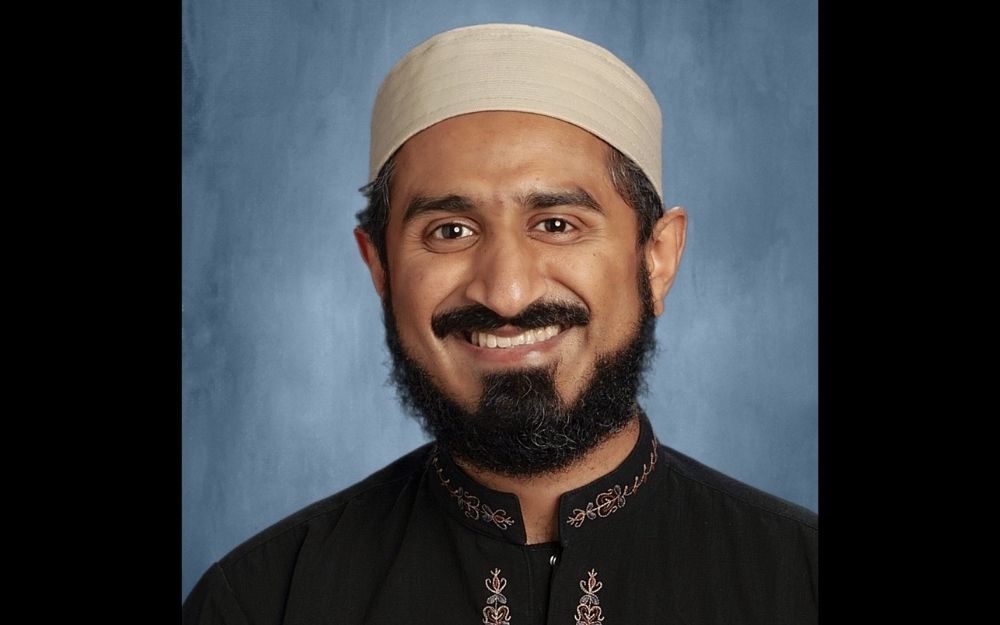
AbdulAziz Syed, a licensed clinical social worker and therapist from the Khalil Center, will lead discussions and activities about mental fitness and health for families and individuals, youth and adults, at the Madison Public Library on Sunday.
Khalil Center therapist and clinical social worker Syed says two groups will benefit from the Muslim Wellness Day event on Sunday: people who are feeling pain and those who want to help them.
“Pain doesn’t show up in our lives for no reason,” he explained. “It is a sign that something in our lives needs to change. If we follow the pain, it will tell us more about ourselves more than our pleasure ever will.
“If we are in pain, I hope people can come and not just find solace and feel validated, but also know there is a way out, a way forward and things can get better. There is hope and that hope is held in your deeply ingrained beliefs and traditions.
“For others, if you are doing well, you will learn how you can give back. How can you create a space other people can benefit from? How can we create a community where we can have these conversations openly in a supportive and effective way?
“There is a hadith one of our directors at the Khalil Center taught us. Roughly translated, it says: ‘All creation is the family of God, dependent on God and the best of us are those who are in service to the rest of creation.’”
“Allah wants his servants to feel loved,” Shoukfeh added. “We want to bring that part of Islam out, too. Islam is not just about the actions you do but it is also about the feelings you have towards God and others.”
Winning support for Muslim mental health
When Shoukfeh, Ahmed and Saran thought about the needs of Madison’s Muslim community, mental health came to mind.
Shoukfeh works with children and youth as a volunteer at the Madinah Community Center and the Madinah Academy of Madison, the only Islamic school in Dane County. “I was seeing more and more kids come up to me, asking me for help with issues, saying parents don’t understand what they are going through. I’m not a licensed therapist. I want tools to address their needs.
“Our community has never had an event on this topic. It is something needed even more now because of the pandemic and because many in the community here are immigrants. The status of immigrants in America and being Muslim in a smaller community where we are not surrounded by other Muslims like you would be in New York or Chicago, all of these factors impact our mental health.”
The three women are not part of a formal organization. They got together and brainstormed to develop a proposal by the end of September. They received the news their proposal was selected at the end of October.
Of 26 proposals submitted, the Muslim Mental Health Matters proposal was one of three winners, said Kristina Gómez, Madison Public Library Community Engagement Librarian.
The proposal won grant funding from the Milwaukee Public Library Foundation to support the program. The library provides the winners with a four-week workshop series to develop skills for hosting large-scale events. It also provides funding to bring speakers, a stipend for the teams planning the programs, library space and other services, Gómez said.
“I am so happy with this proposal,” she exclaimed. “This team submitted a valuable idea that used their insight into the needs of the Muslim community and a cultural competency piece to help others who work with the Muslim community.
“I feel very passionately about the library’s opportunity to help community members in their wellness, health journey. It has an impact on living a fulfilling life. This aligns with what the library wants to offer.”

